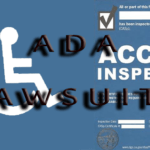One of the most common questions that people ask me is how renting out property affects their taxes. The rules are actually quite complex, and you should definitely seek the advice of a professional, but here is a simple overview.
Generally speaking, renting out real estate is considered “passive income.” This is the worst type of income to have (for tax purposes). Passive income counts as regular income and is taxed at the higher rate, but the losses you can take are limited and provide no relief from taxes. Unlike an “active” business, where losses can be deducted from your income, rental business simply sets those losses aside to be used later, and that later day never comes for all too many taxpayers.
The most important thing to remember about a rental is that, for tax purposes, they often lose money. This is because you have to take a depreciation deduction on top of your other costs for the building or property. On the one hand, that will mean your rental income is rarely taxed. On the other hand, it means that your losses will not save you any tax dollars.
There is some good news. People making less than $100,000 per year in other income can deduct up to $25,000 of passive losses. Over that amount, the amount deductible phases out until it is $0 at $150,000 of income (for married couples). What this means for you is that you should understand that your decision to buy a rental property should not be influenced by the idea that it will generate tax savings.
However, there is an important opportunity. “Real estate professionals” do not have the passive activity loss limitations on real estate. To qualify as such a professional for tax purposes, you have to spend at least 750 hours per year actively working on your rental business. But that is not the only requirement. If you believe you spend enough time on your rentals, you should ask your tax professional about the other requirements. It could mean big savings.







